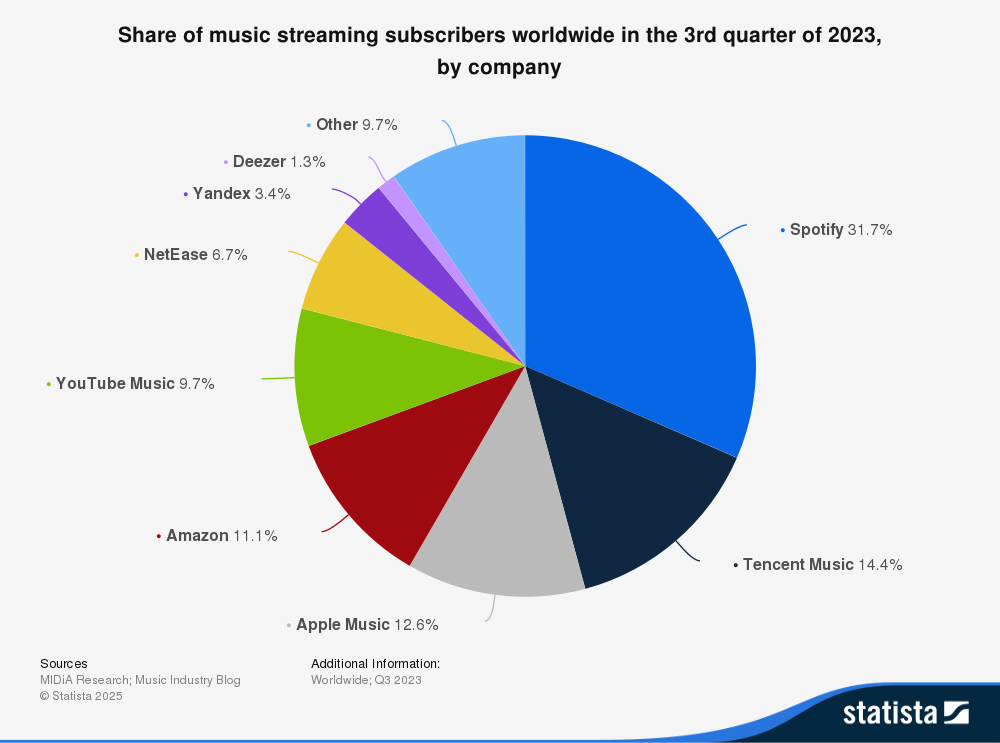Elias’s Blog
Spotify never sold me my favourite artists’ catalogue, it sold me access to it on their proprietary platform, in exchange for a subscription fee. So, I shouldn’t be surprised to see that the money isn’t going to the artists.
It’s the season of Spotify Wrapped again, and my social feeds are filled with commentary about about the streaming giant. Every year it seems like the share of posts critical of the meagre sums paid to artists grows by just a little bit. Meanwhile, the United Musicians and Allied Workers are lobbying the U.S Congress to force streaming platforms to adopt a more redistributive model.
The digital era made music into an an information good 1. In the early 2000’s, piracy was so rampant that when Apple introduced the iTunes store in 2003, on which you could buy every song for ¢99, people celebrated the rescue of the music industry. Inadvertently however, this move actually cemented the transformation of Music into a commodity.
Then came the streaming model, which now dominates across the media landscape. In this model, you don’t own the music you listen to. Rather, you pay rent to the platform which hosts the files and grants you permission to stream them on-demand. Today music is no longer commodity, but content. When you pay for Spotify you’re paying for the platform; the sleek UI, the recommendations algorithm, the playlists, the content delivery network (CDN) infrastructure that beams the songs/podcasts into your device.
Imagine going back to 1995 and explaining to some post-punk kid that in twenty years the vast majority of the world’s music would be available on-demand in the pocket. Perhaps even they would celebrate this convenience as innovative and revolutionary. But who asked for this? I certainly didn’t. On the platform, my music now has to compete for the listener’s attention against the alternative of every other piece of content available.
So I decide to go against the grain; self-manage and self-distribute my music here. But even here, where theoretically we are outside of the platforms’ grip, I am a platform worker2. Music is content and monetisation remains more-or-less an empty goal, replaced by the good vibes of having doing something differently.
Refs
Witt, S., 2015. How music got free: the end of an industry, the turn of the century, and the patient zero of piracy. Viking, New York. ↩︎
Vandaele, K., 2018. Will trade unions survive in the platform economy. Emerging patterns of platform workers’ collective voice and representation in Europe, 33. ↩︎
Music Industry Blog. (2024). Share of music streaming subscribers worldwide in the 3rd quarter of 2023, by company. Statista. Statista Inc.. Accessed: February 13, 2025. https://www.statista.com/statistics/653926/music-streaming-service-subscriber-share/ ↩︎
